
臺灣非營利專業書評媒體。Openbook編輯部將提供原生報導,文化觀察,人物採訪與國內外重大出版消息。 https://linktr.ee/openbooktaiwan
"Book Review" Welcome to the Wulin that has passed away: Reading Zhang Beihai's "Xia Yin"
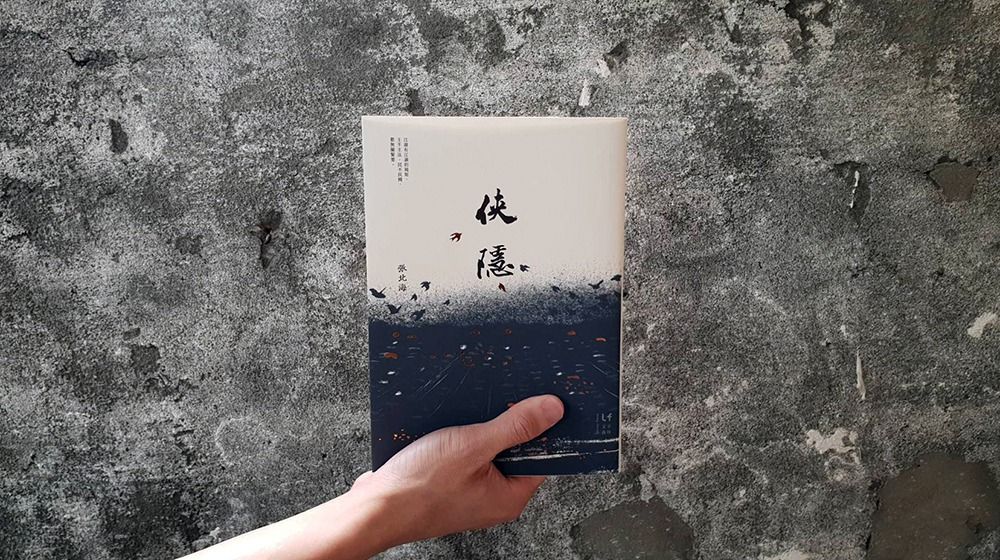
Written | Silence (Writer)
➤Reminiscence: Reappearance of infinite magic
The most surprising thing about Hou Hsiao-hsien's filming of "The Assassin Nie Yinniang" is the attempt to reconstruct the daily life of the Tang Dynasty in the film world - all kinds of objects, places and ways of life that are suspected to be real. We can't say whether it is the Tang Dynasty in history, but the research and detail refinement with great effort has indeed summoned the visual magic of a vanished era.
As the wonderful dialectics and metaphors of this martial arts movie, "Thorn" and "Hidden" are about hiding, about how the assassin turns from the existence mode in the dark and walks into the countryside in broad daylight, about hiding is not to kill, it is to give up The execution of violence is the elimination of one's own training and desire... All these things are shocking.
The disappearance of "Assassin Nie Yinniang" cannot be regarded as the disappearance of an assassin alone, but has a more complex global significance behind it. For example, from the gorgeous conspiracy turmoil into the simple pastoral, for example, the faint realization that the brilliant and exquisite Tang Dynasty is heading for destruction step by step.
Zhang Beihai's "Xia Yin" seems to be secretly communicating with "Assassin Nie Yinniang". The investigation of the meaning of existence in Yin and martial arts, the complete presentation of a certain era and region, and the arrival of the final disappearance, both of which make people concentrate The rich feeling of hope. Very slow movies, very slow novels, one staring at the passing Tang Dynasty, one looking at the passing Peiping, is also very affectionate, very meticulously using images and words to reproduce those people and things.
Reproducing the style of a certain time and place has always had the infinite magic that makes people feel like they have experienced it.
Like "Xia Yin", which came out in 2000, the first sentence of "City-State Violence Group" is "perhaps because of a secret sense of escape". In the whole novel, concealment is also the focus. Of course, so are the shocking mysteries that reveal the country.
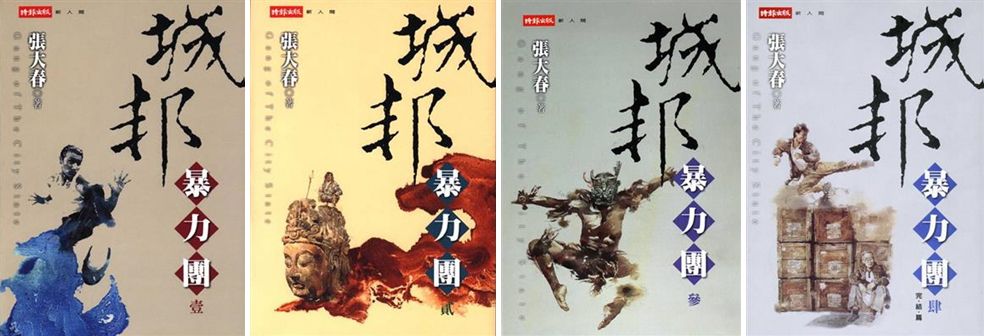
However, Zhang Dachun's concealment is as a magic (Zhulin City, a whole hidden world and history: "An unprecedented escape, unprecedented liberation, 100% hiding... People who love you hate you who know you are indifferent People who miss you, people who hate you, turn a blind eye to you. What a wonderful state!"), the so-called "hidden" should not be based on words, deeds, or deeds, but should be A kind of wisdom that rolls through the dust, wades through the mud and water, stirs the turbid and promotes the clear, and knows the black and guards the white." Zhang Beihai's attitude is probably not the same.
Zhang Beihai's hidden meaning of mourning is a remembrance for a unique race, a long-standing culture and a day when life has passed away.
He wrote about the daily life of Peiping before the fall of the Occupation, covering all aspects of food, clothing, housing, transportation, entertainment, and entertainment, so that people can see how the old Peiping lived, lived with dignity, dignity and taste. How to do it during festivals and celebrations is written in full detail, and the occupations of the main characters are closely related to their daily life (Li Tianran is the editor of "Yanjing Pictorial", and Guan Qiaohong is sewing).
That's why when Peiping fell, American journalist Luo Biancheng took Li Tianran to raise wine and clink glasses to "keep the spirit" for Peiping:
We should also take a sip of her beauty, her deadly beauty. ...the enchanting ancient capital, and everything she stands for... the ubiquitous traditions, the ubiquitous fine culture, the ubiquitous way of life... all this, from the first Japanese soldiers in the name of conquerors Entering the city, from that moment on, all of this will disappear forever...
This is undoubtedly Zhang Beihai's novel feat of recalling with words and mourning with documentary. And Zhu Tianxin once made a similar sigh in "Ancient Capital": "Probably, everything you were familiar with and remembered in that city died before you."
➤ Topography: The art of returning to the vanishing scene
It is already a tradition for martial arts novels to write about the geographical environment. Often, the beginning of the story is to describe where the characters are, where they start, and what kind of adventures they experience. But "Xia Yin" is about returning. It is about the return of Li Tianran, who was picked up by American doctor Ma Kai at the modern railway station. It has a strong exotic color. From this, Li Tianran returned to the ancient capital of Peiping, where he was leisurely and leisurely, step by step.
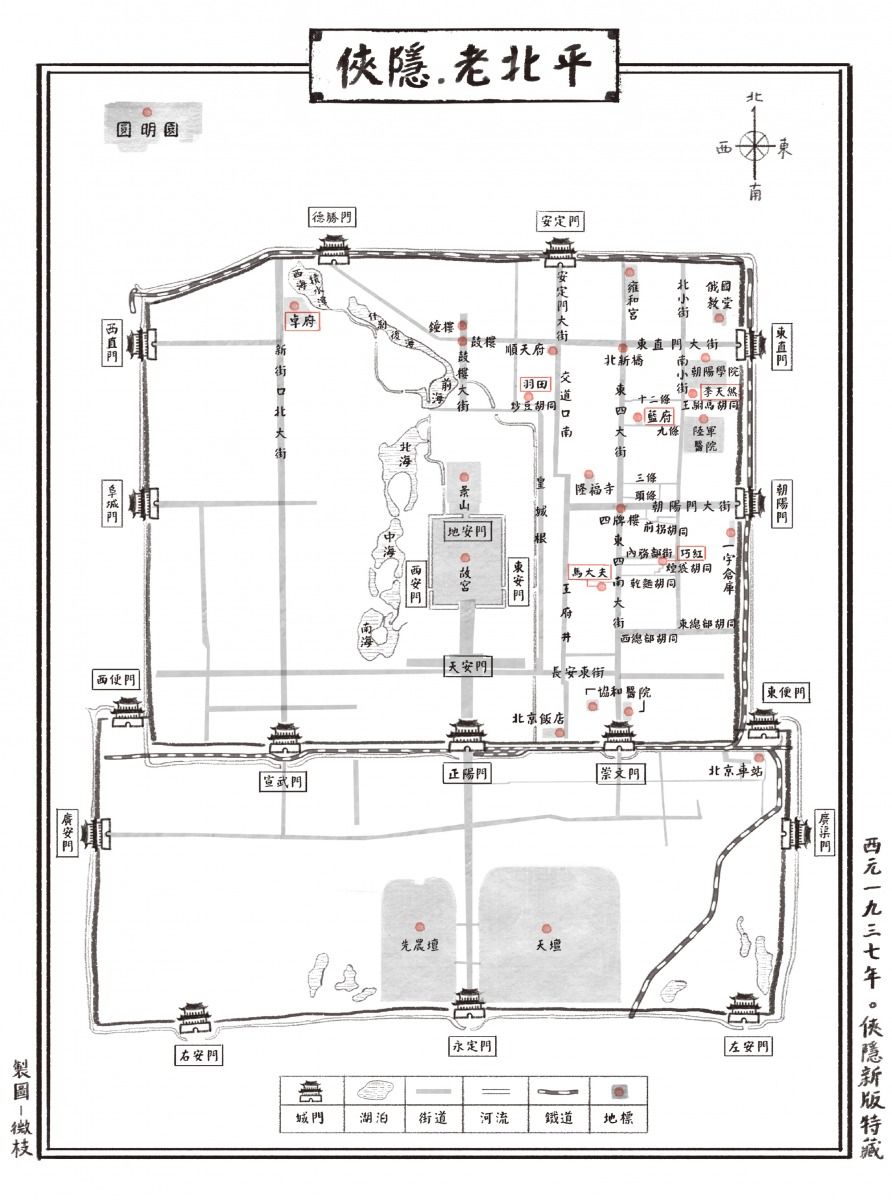
Compared with the previous martial arts descriptions, which were often perfunctory, Zhang Beihai wrote Beiping with sincerity. He is known for writing about the life and culture of the big city of New York, and he is extremely affectionate and infatuated when writing about Peking. He stamped on it ardently, and filled the sketchbook of Peiping in the 1930s. The detective and espionage elements of "Xia Yin" are not less than the martial arts elements - just like the private detective Matthew W. Scudder, full of endless admiration, looks at the abundance and decline of a city.
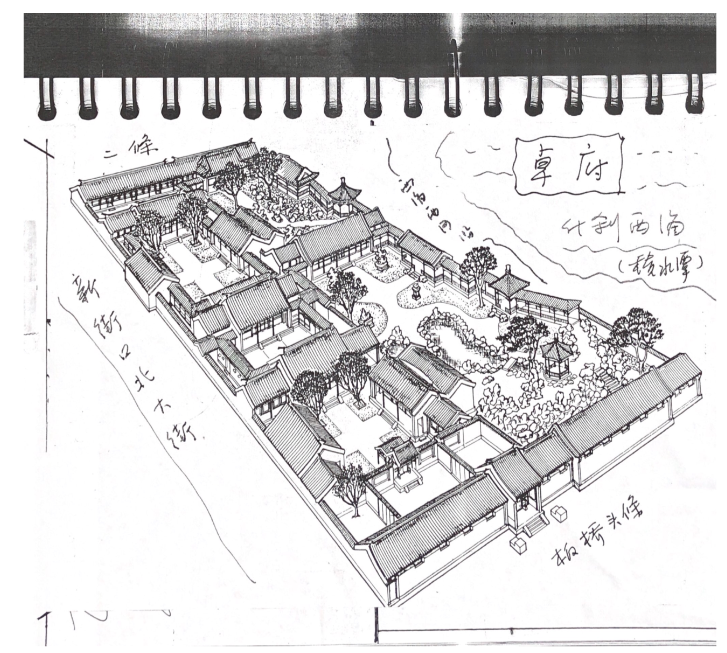
It was not until "Xia Yin" that Wuxia actually added topographical writing, not just maps or geography, but as Graham Greene wrote in "The Havana Commissioner":
Population research reports can print various statistical values and calculate the population of a city to describe a city. But to everyone in the city, a city is just a combination of lanes, houses, and people. Without these, a city is like a fall, and only sad memories remain...
Zhang Beihai reborn the perished Peiping in the field of martial arts. Compared with his younger generations, such as Murong Wuyan's "Great Tianjin", Xu Haofeng's "Hidden Behind the Sword", or Zhang Jun's "Guoshu" in Beijing, he is more calm and delicate. Wisdom is compatible with figure, and the style is good-looking.
Writing a martial arts novel should really be like the essence of martial arts described in "The Gone Wulin" written by Li Zhongxuan and written by Xu Haofeng:
Xingyiquan's swordsmanship and swordsmanship all use a point, but it's not just a point. Xingyi Quan is also called Liuhe Quan, and Liuhe means up and down all around. It is also necessary to practice the hidden tip of the sword, which can be used in all directions in one encounter. When practicing boxing, you need to practice in all directions. When one drills out, you don't just punch the enemy's chin, but take care of it all. That way you can adapt...
Wuxia also has to write in all directions, not only to write some kind of magical feeling, not only to write about the natural changes in the world, not only to write about the martial arts fighting for hegemony, but also to be down-to-earth how people are in the world. How to live in the cracks of all kinds (the world of the family, the family, the world), there is no escape, the differences are complicated.
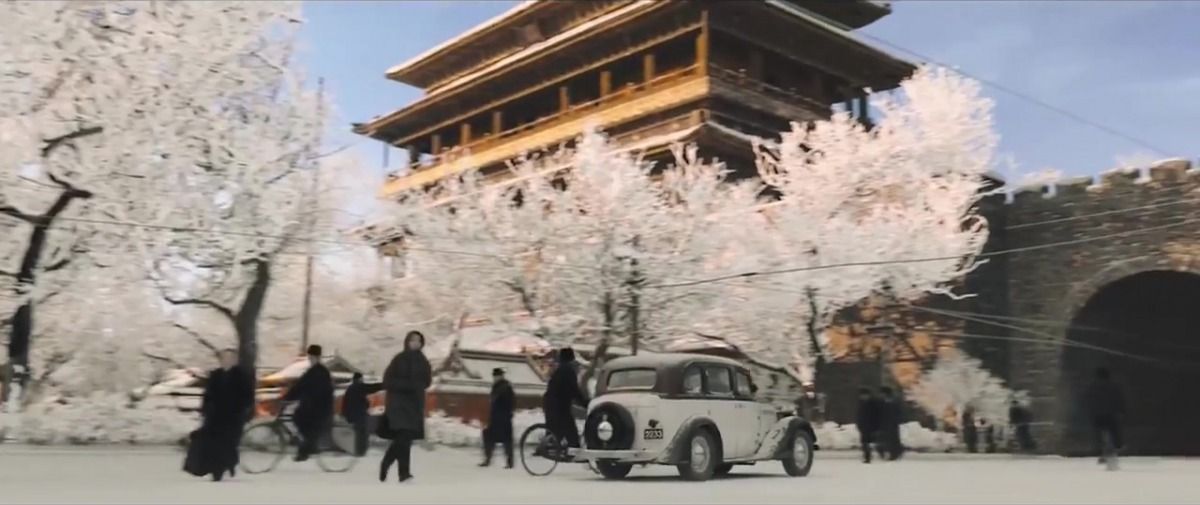
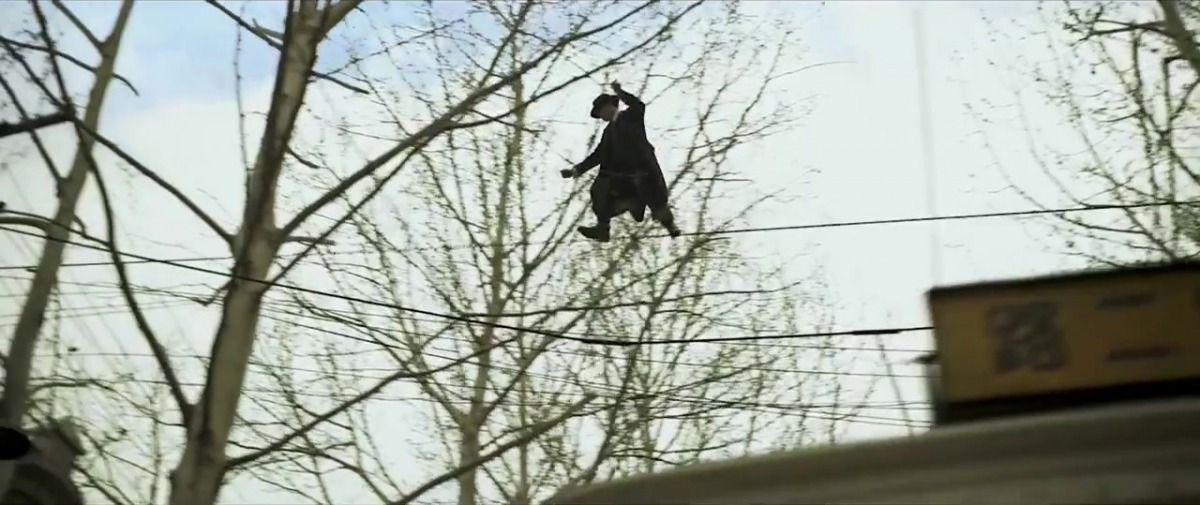
"Xia Yin" is written in this way, and it is written with radiance and sensitivity. As soon as Zhang Beihai made his move, all the strange and ever-changing characters of Xia were turned into reality. There was not a little bit of frivolity. It was the scene of a warrior's life and revenge in Peiping.
"Xia Yin" really teaches people to be moved by the trivial matters of interpersonal communication and home, not martial arts confrontation. For example, Li Tianran's arrangement of small cross-hospitals, buying gifts for others, walking with Guan Qiaohong or walking on the street or tailoring robes are all very interesting. . Martial arts novels often omit daily life and are always exposed easily. There are no details, no matter how many and compact the plot is, it is all empty, and there is no way to really attract anything.
For example, revenge is a common theme in martial arts novels, but Zhang Beihai manages to handle it in a moderate and moderate manner. After three fights (killing Haneda, breaking the mountain's arm, and shooting Zhu Qianlong), Li Tianran's experience is to quench thirst, itch and hunger. There is no mystery in showing off.
Lan Lan buried two souvenirs when she left Beijing, but Li Tianran said with emotion, "It doesn't matter...but it's beautiful. There will be something to find when I come back." At least there is something to look for. This is the most understated but also the warmest sentence in "Xia Yin".
➤ Soul Requiem: Entering a situation without martial arts
In the tradition of martial arts novels, Xia is the central person, but in the period of the Republic of China in "Xia Yin", Jianghu people have become marginal people:
... The previous king's law was no longer a thing, and it could accommodate us, and we were honored as chivalrous, but now, law has replaced justice, and we are the first to be eliminated.
To write modern martial arts novels, we must first face practical problems such as guns and laws, and it is impossible to dodge. So Lan Qingfeng asked, "You guys have your world, I understand that, but... if your chivalrous arena, your martial arts world, and our world, our mortal world... if one day these two What do you do when the world comes together?" And Li Tianran finally slammed into the justice of the nation and the world from the perspective of personal and justice, and had to make the choice of abandoning the river and the lake.
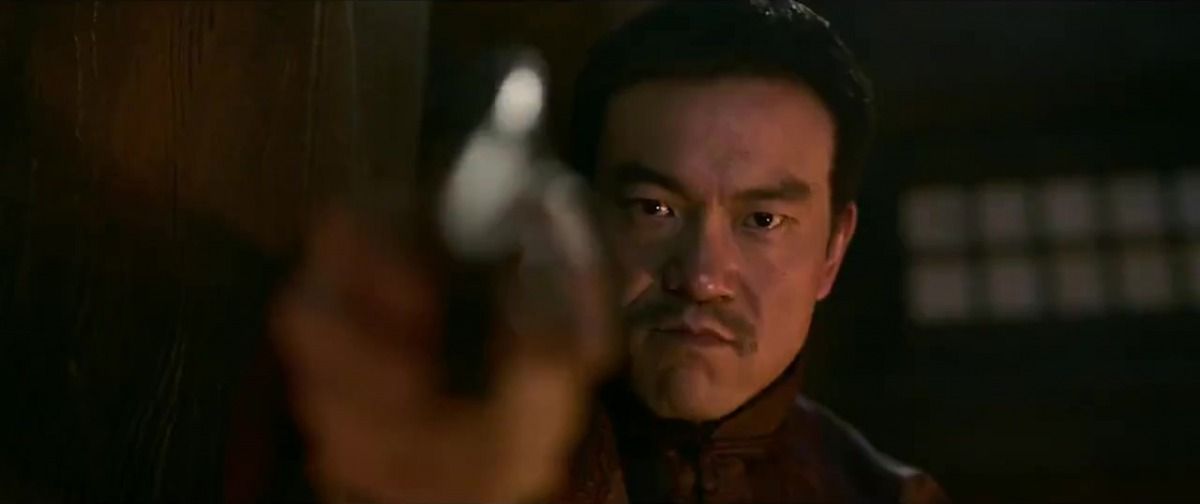
Is Li Tianran who killed the enemy with a gun still natural? Martial arts is a natural force that comes from the whole body of fists and feet. He has been trying to abide by the rules of the rivers and lakes, but in the end he has to enter the modern age and machinery-the heroes of the rivers and lakes have now self-destructed, and there is no place to live.
Jin Yong's writing of "The Deer and Ding Ji" and Wei Xiaobao is a mockery of the heroic knight, and the root is anti-martial arts. And "Xia Yin" is even more unique, it is close to "no martial arts", because the final solution to the enemy is not martial arts, but two guns, technology, and modern warfare. The rules of the rivers and lakes are completely swallowed up by the larger reality of the world.
It turned out that Li Tianran, who did not take Wang Fa, the Republic of China and the law seriously, eventually had to accept the cruel situation of Jianghu, Jianghu, Wushu and Wulin. This is the intention of the setting sun that runs through this novel—from the first date of Li Tianran and Guan Qiaohong, guessing "there is one in the night, one in the dream, one in the window, and one outside", and the word "Xi" has been obtained. Preview the last chapter "Silent Sunset".
Li Tianran also asked himself, "Xia? Is it still possible?" Zhang Beihai was left in doubt, he didn't say it was possible or impossible, he just showed us this scene: "The sunset at dusk, weak and powerless, silently Speechless. There is a lonely swallow in the sky, piercing the clouds." He also secretly wrote the sadness and despair of Xia's death.
Walter Benjamin observes the dying auras in the age of mechanical reproduction in "Towards the Age of Die Aura", he says:
Defining "Spiritual Light" as "a distant and unique presentation, although it is close at hand", only expresses the ritual value of an artwork in terms of time and space. Far is the opposite of near, and what is essentially "distant" cannot be "approachable".
That's it, the chivalrous value that the hero of the rivers and lakes deeply believed in has already passed away.
"Xia Yin" is not only a song for the soul of Peiping, but also a song for the soul of martial arts. After that, where can the martial arts without aura go? "Xia Yin" is like the last evocation of the martial arts, the last elegy. Just like in "The Last Samurai" ( The Last Samurai ), an American officer who was immersed in the glory of knighthood, but tired of modern warfare, finally fell in love with the spirit of Bushido in Japan and found the meaning of survival, but nothing could be saved, and the world was still mercilessly perishing towards Bushido. run to the other side. ●( The original text was first published on the OPENBOOK official website on 2018-05-24)
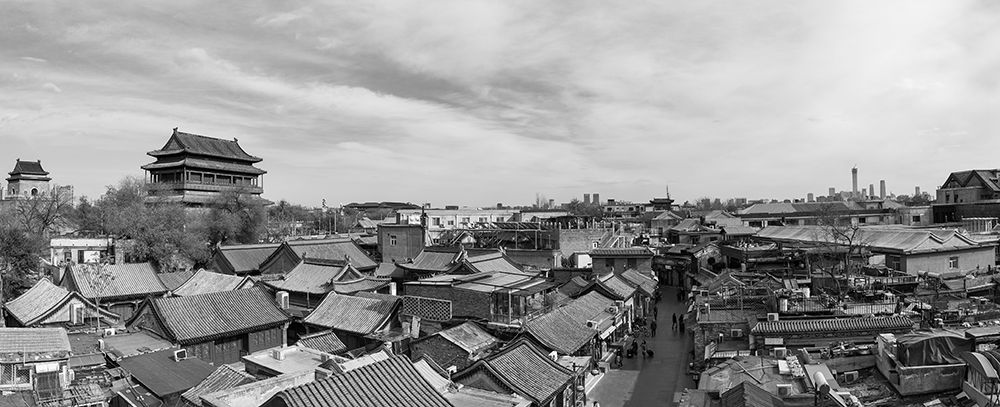
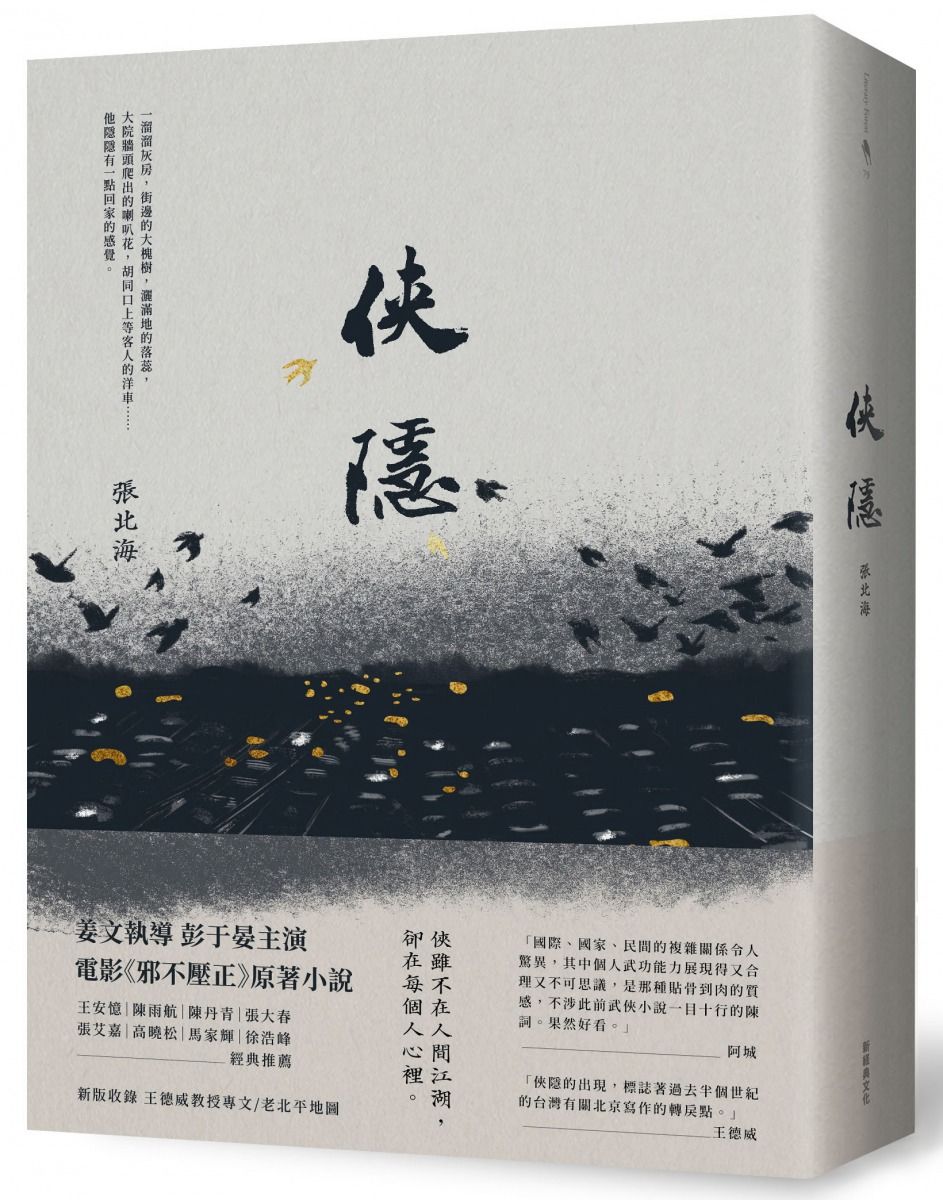
Xia Yin <br class="smart">Author: Zhang Beihai Publishing: New Classic Culture
About the Author Zhang Beihai
His real name is Zhang Wenyi, his ancestral home is Wutai, Shanxi, and he was born in Beijing in 1936. His father, Zhang Ziqi, once responded to the Revolution of 1911 in Shanxi, and later studied in Japan, and has a deep connection with Feng Yuxiang's Northwest Army. In 1949, Zhang moved to Taiwan with his family, studied Chinese under Ye Jiaying, and studied at Taiwan Normal University. In 1962, he went to Los Angeles to continue his studies and studied for a master's degree in comparative literature at USC. He was admitted to the United Nations in 1972 and moved to New York, where he has settled down to this day.
Since the 1970s, Zhang Beihai has been working in the United Nations while writing about New York and the United States for many important newspapers and magazines. His writing is almost the most important cultural guide for the Chinese who arrived in New York at the beginning of that year. Chen Danqing once said that he understood New York only by reading Zhang Beihai's words, while Zhan Hongzhi, a scholar of culture, said: "For a long-time reader like me, Zhang Beihai is New York." I am "Zhang Fan".
Zhang Beihai's prose books include: "On Broadway", "America: Eight Stories", "Man in New York", "American Post Brief", "American America". In addition, in 2000, he wrote a long modern martial arts novel "Xia Yin", which surprised all walks of life. He paid tribute to the "fading old Beijing" with this book during the most intense era of demolition of alleys in Beijing The adaptation, which was finally adapted and directed by Jiang Wen, was released in 2018, and the title was changed to "Hidden Man" (Hidden Man).
Like my work?
Don't forget to support or like, so I know you are with me..
Comment…